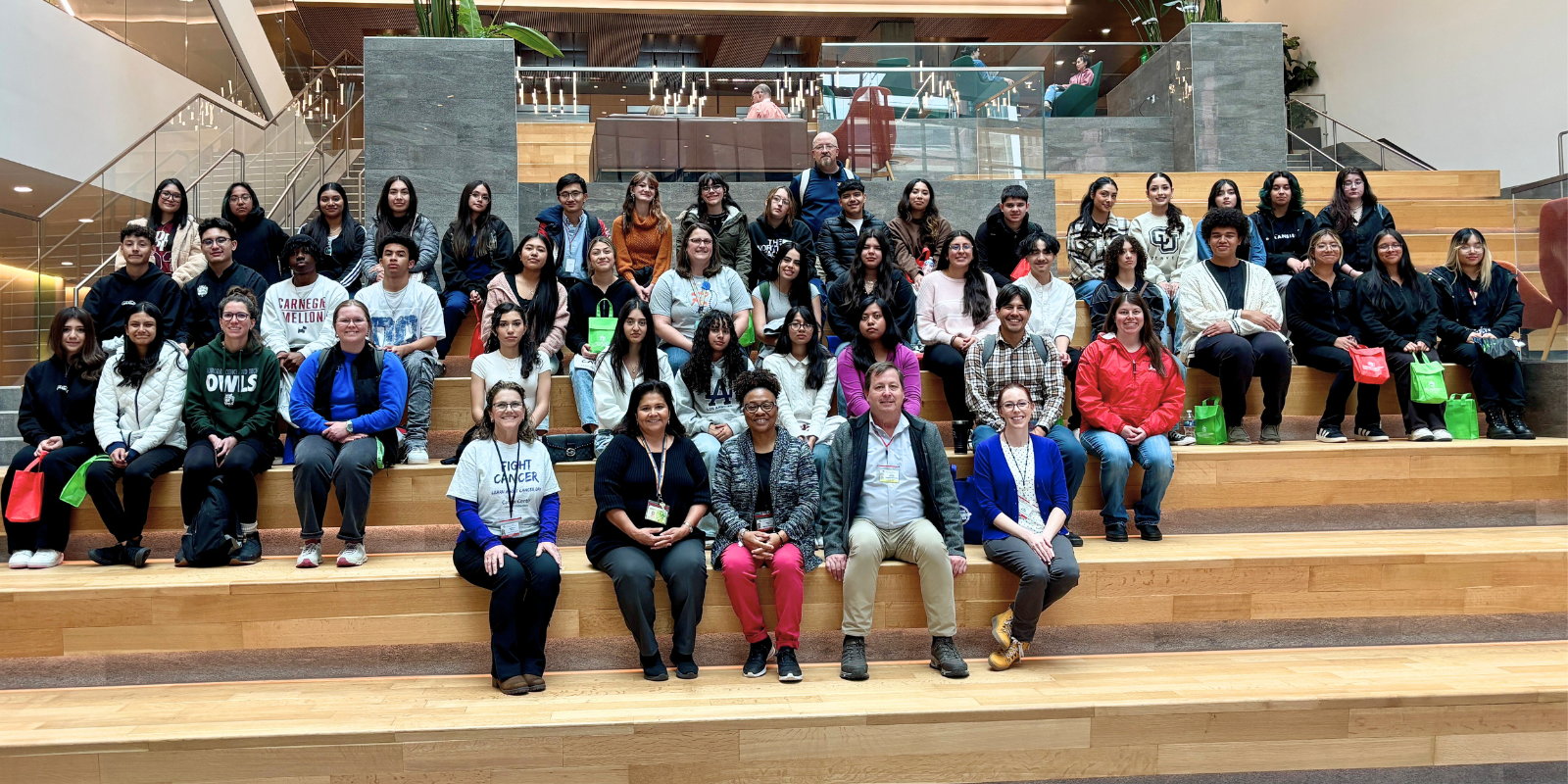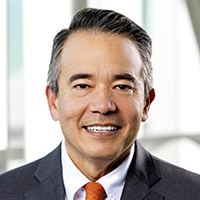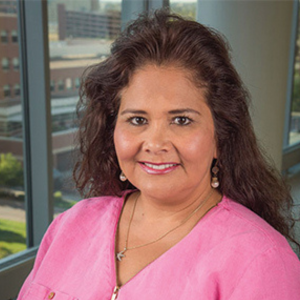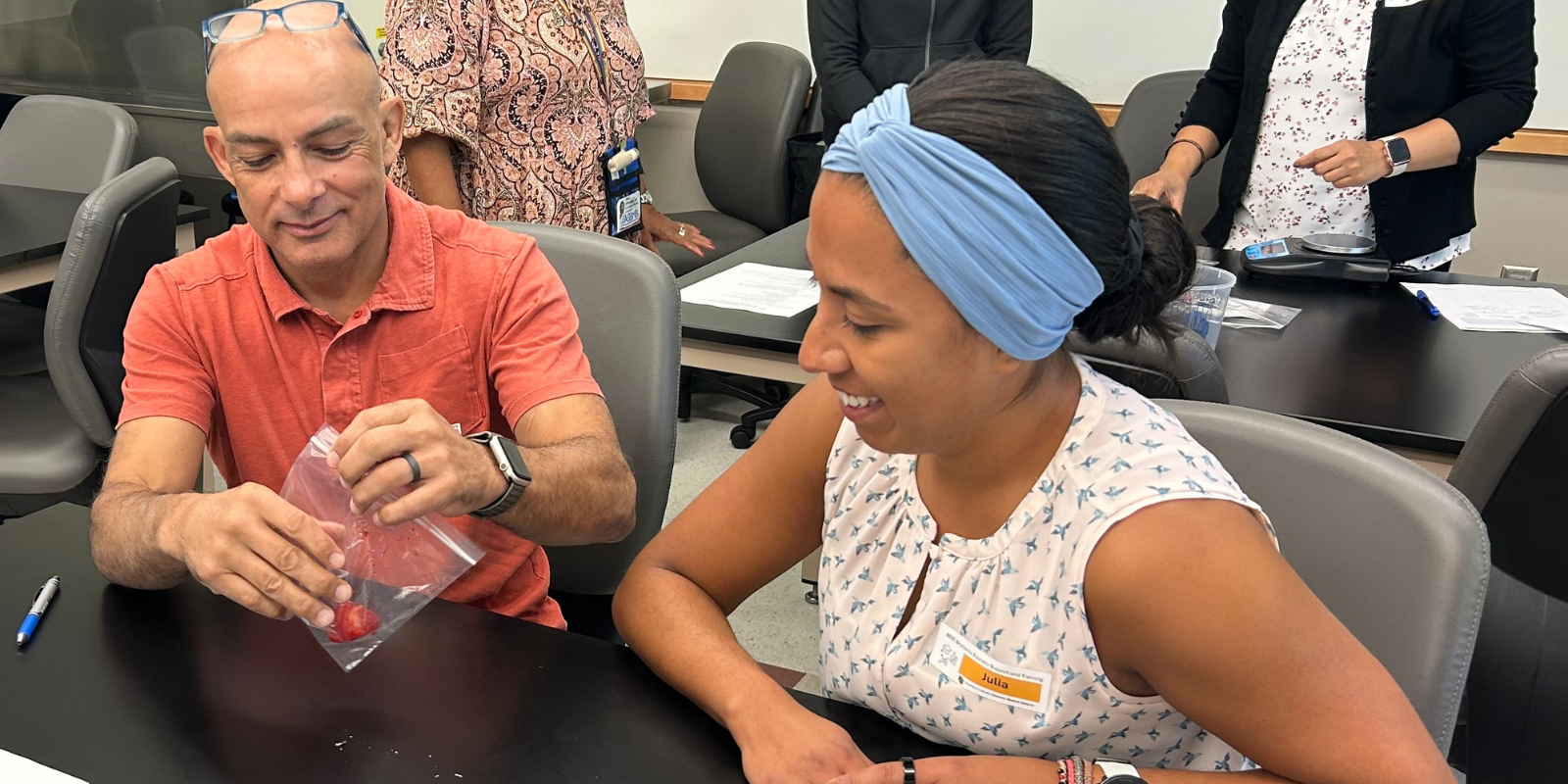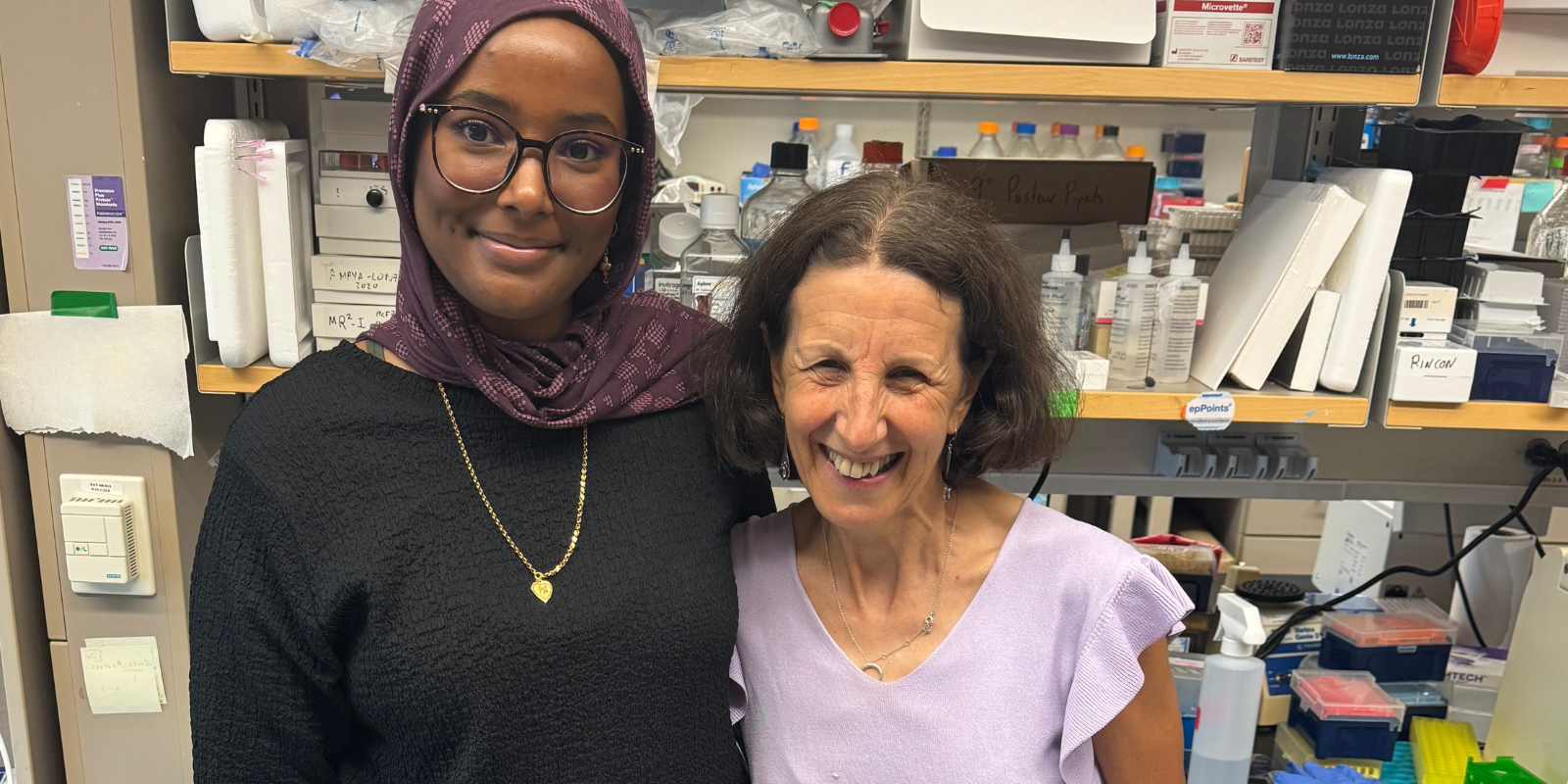Richard Schulick, MD, MBA, director of the University of Colorado Cancer Center, did not mince words in giving a conference room full of high school students an overview of cancer on April 18 during Learn About Cancer Day.
One in two people gets some form of cancer, Schulick told the teenagers, and one in four die from cancer.
“Look around this room,” he said. “If we keep going the way we’re going now, one in four of you will die of cancer. You think you’re immortal, right? I thought so, too. But when you get to my age, you start thinking about stuff like that.”
One of the students in attendance was Laila Olivas Balderas, a senior at Westminster High School. She said she was “not too surprised” by Schulick’s warning.
“Cancer has been in my family for a while,” Olivas Balderas said. “A lot of my family members have died or been diagnosed with cancer, so it’s real to me and I can understand it’s part of the world.”
What did surprise her, she said, was what she heard about “how many resources there are that can prevent and treat and cure cancer.”
Rogelio Lopez-Beltran, another Westminster High senior, said he, too, has seen “a lot of cancer around me. But I liked hearing about different solutions, different remedies, and different possible outcomes from these cancers. That really sparked interest in me and curiosity about maybe helping to find remedies.”

Richard Schulick, MD, MBA, director of the CU Cancer Center, talks about cancer with students at Learn About Cancer Day on April 18, 2025. Photo by Devon Balent | CU Cancer Center.
A cancer connection
The daylong event was presented by the CU Cancer Center’s Cancer Research Training and Education Coordination (CRTEC) program, which organizes a variety of education and training initiatives targeting K-12 students, undergraduates, medical students, residents, and fellows. Learn About Cancer Day, held twice yearly, targets high school students interested in future careers in biomedical sciences.
Adela Cota-Gomez, PhD, the CU Cancer Center’s assistant director for education administration, said the objectives of Learn About Cancer Day “are to expose the students to information about cancer and cancer careers. It’s to help them realize that, whatever they might choose to do within medicine, there’s a cancer connection. We’re educating them about their options and paths they might choose.”
The event was attended by students from Westminster High as well as from two Aurora schools: Aurora Science & Tech High School (located adjacent to the CU Anschutz Medical Campus) and Rangeview High School.
Students heard presentations by Schulick – including a video of him performing surgery on a cancerous pancreas – and by CU Cancer Center member John Tentler, PhD, who helped launch the event. They also rotated among a number of interactive stations for hands-on demonstrations of facts about various cancers.

Photo at left: Kristin Schaller, PhD, explains brain cancer to students at one of several interactive cancer stations at Learn About Cancer Day on April 18, 2025. Right: Miria Kano, PhD, associate director of the Office of Engagement, Access and Success (EAS), engages students in an exercise on cancer health disparities. Photos by Mark Harden | CU Cancer Center.
Then they broke into groups for tours of cancer labs and shared-services centers, where they peered through a microscope at cell samples, saw clouds of condensed vapor pour from an opened liquid-nitrogen tank holding tissue samples, and heard a presentation on genomic sequencing.
Scott Troy, a biomedical sciences teacher at Westminster High and its satellite Iver C. Ranum Innovation Campus, said he and his colleagues have had a fruitful relationship for years with the CU Cancer Center and CU Anschutz – a relationship that helps his students connect the dots of cancer education, research, and care.
“This is a way for students to understand that every health care decision has behind it a tremendous research base and an academic medical center base that has either brought that therapy to bear, or has improved it, or has created a system in which that works,” Troy said. “Cancer therapy is a perfect example of that. So we are repeat offenders – we come to this event anytime we are asked.”

Photo at left: Laila Olivas Balderas and Rogelio Lopez-Beltran, both seniors at Westminster High School, at Learn About Cancer Day on April 18, 2025. Right: Students visit a cancer lab. Photos by Devon Balent | CU Cancer Center.
Sparking interest
Olivas Balderas said she’s been interested in pursuing emergency medicine “for a long time. I’ve explored pathways through first responders all the way to emergency surgeons. Today definitely sparked my interest in what surgery is and what it could be. And this experience did make me interested in cancer research and medicine, although I think I’ll stick to emergency medicine.”
Lopez-Beltran said he’s been focused on biomedical engineering. Learn About Cancer Day, he said, “just hooked me even more. I liked seeing how everything in research works together and how there are so many different possibilities. It’s all out there and it’s all available. Right now I’m just exploring my options.”
In his talk, Schulick leavened what he called the “doom and gloom” of cancer with a measure of optimism. “The good news is, our progress against cancer is accelerating. Every year we get better because we know more things. We do better research and we do more things to prevent cancer.”
Schulick urged students to think about careers in medicine and consider playing a part in the fight against cancer.
"I may not be working 10 or 20 years from now,” he said with a smile. “So it’s my responsibility to get enough of you interested in fighting cancer. Because if none of you are interested in that, no one’s going to take care of me if I get cancer, right?”
Photo at top: Students, teachers, and CU Cancer Center members pose for a group photo at Learn About Cancer Day on April 18, 2025. Photo by Devon Balent | CU Cancer Center.
